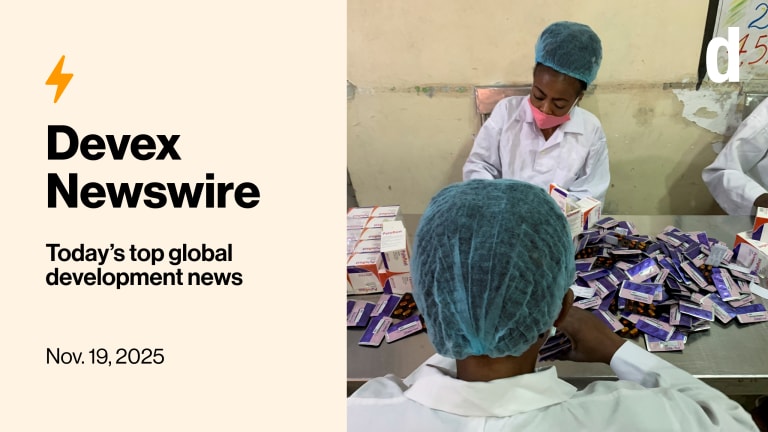
EDITOR’S NOTE: Despite increasing tension between U.S.-Pakistani relations, the Wilson Center report recommends continued civilian assistance to the South Asian country. The Center for Global Development welcomes the proposals, especially since some are similar to what CGD recommended in its July report. Milan Vaishnav highlights three such points in this blog post.
Yesterday, a working group convened by the Woodrow Wilson Center released a report on U.S. civilian assistance to Pakistan. The report entitled, “Aiding Without Abetting: Making U.S. Civilian Assistance to Pakistan Work for Both Sides,” comes on the heels of numerous reports on the U.S.-Pakistan relationship, notably CGD’s own report on this subject.
The Wilson Center report comes at (yet another) low point in U.S.-Pakistani relations. Last weekend, NATO warplanes conducted a cross-border attack in Pakistan that claimed the lives of 24 Pakistan servicemen. While the facts surrounding the incident are muddy, Pakistani government officials are seething. As retribution, the Pakistanis announced they would boycott next week’s international conference on Afghanistan in Bonn and cancel a high-level military delegation scheduled to visit America this week.
The Wilson Center report recommends that, in spite of the difficulties in the bilateral relationship, the United States should continue its program of civilian assistance to the Pakistani government. However, it issues a strong warning that “substantial mid-course changes” are needed if assistance authorized under the Kerry-Lugar-Berman (KLB) Act is to achieve a meaningful impact.
We welcome the Wilson Center’s report as it echoes several of the key recommendations the CGD study group made in its report issued in July. We want to highlight three in particular:
Resist attaching security-related conditions to civilian assistance. Both reports are explicit about the need to ensure that civilian assistance is unencumbered by conditions tied to security benchmarks. The underlying logic of KLB was to create a two-track approach, whereby civilian and security assistance were not conflated. Unfortunately, there are worrying signs that Congress is moving towards taking such steps.
Integrate non-aid tools into the U.S. development strategy. Both reports point out that the overarching narrative in the bilateral relationship has centered on aid—how much is being appropriated, committed, disbursed, etc. These are important concerns but they contribute to an obsession with inputs (dollars spent), rather than outputs (what has been achieved?) or long-term goals (is Pakistan a more stable, growing democracy?). The Wilson Center report rightly points out the need to better “knit business into development” by emphasizing actions the U.S. government could take on trade and investment policy that would create jobs, grow the Pakistani economy, and support the private sector. Our own report strongly supports increasing market access for Pakistani products, and analysis by Kim Elliott has shown that doing so would have a negligible impact on the American economy.
Improve transparency about what the U.S. is doing. There is a call in both reports for the U.S. government, namely USAID, to be more transparent in what it is doing in country by setting up a website that serves as a clearinghouse for information on aid programs and flows in Pakistan. Numerous U.S. government officials have said that this is in the works—indeed, USAID Administrator Rajiv Shah announced that a website would be up and running by year’s end. We have not seen any evidence of this, but we’ll keep our fingers crossed (after all, there are still 30 days remaining before 2012).
We hope that the Wilson Center study will provide another useful injection to those in the Administration and on Capitol Hill who want to strengthen the U.S. development approach in Pakistan. Here at CGD, we are busily working on evaluating the Administration’s response to the recommendations contained in our own study group report. Stay tuned to these pages for our findings.
Republished with permission from the Center for Global Development. View original article.








